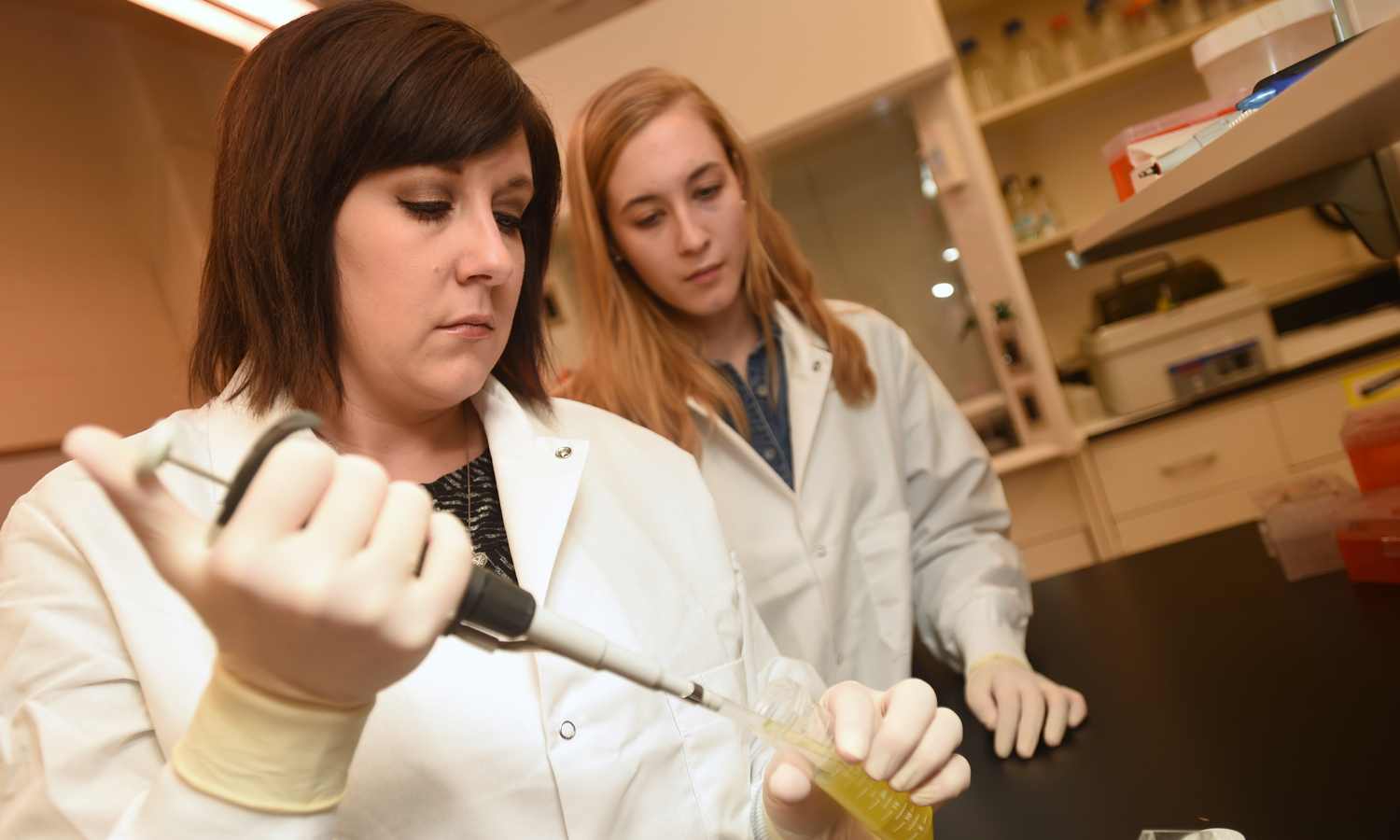Developmental Research Project Program
Overview of the DRPP
The New Mexico IDeA Network of Biomedical Research Excellence (NM-INBRE) Developmental Research Project Program (DRPP) is driven by the overarching goals of the IDeA program, aiming to enhance biomedical and biobehavioral research capacity while elevating the competitiveness of investigators for participation in NIH research funding and training programs. Guided by a visionary approach, the NM-INBRE DRPP actively engages institutions of higher education in New Mexico, fostering a collaborative, multidisciplinary research network with a strategic focus on addressing significant biomedical questions and critical health problems pertinent to the diverse population of our local communities and the nation at large. The program’s success lies in its ability to stimulate research across partner institutions, encourage collaborations, and instigate transformative changes in departmental and institutional cultures, ultimately strengthening research capabilities and broadening opportunities for impactful contributions to the scientific community.

Structure of the NM-INBRE-5 DRPP
In the 5th cycle of NM-INBRE DRPP, significant changes have been made, influenced by the evaluation of outcomes from the 4th cycle and new instructions in PAR-23-100. The revised DRPP award types will comprise Research Projects (RP) and two kinds of Pilot Projects (PPN and PPE), with a focus on enhancing the research environment of institutions and offering hands-on research experiences to undergraduate students. Additionally, projects assigned to non-PUI investigators are encouraged to provide support for postdoctoral fellows.
Research Projects (RP)
The Research Projects (RP) aim to support promising faculty conducting studies that explore innovative scientific ideas, new model systems, or the development of impactful tools and technologies in various biomedical research areas. Leaders of these projects (RPLs) must be eligible for NIH “R-type” grants, committing a minimum of 50 percent of their professional effort to the project. The funding ranges from $50,000 to $125,000 per year (depending on project scope) for a up to two years, with the possibility of renewal.
Pilot Projects (PPN and PPE)
The Pilot Projects (PP) program comprises two mechanisms, PPN and PPE, supporting small-scale research projects. PPN is for new investigators, focusing on summer research and potential NIH funding development. PPE is for established investigators, promoting new ideas, preliminary data collection, and specialized training. Project leaders must be eligible for NIH “R-type” grants, dedicating at least 25% of their professional effort, with funding levels ranging from $10,000 to $50,000 for one year. While PPNs are renewable, PPEs are not renewable.
Submission Review and Selection of Projects for the DRPP
1. Open submission, review, and approval of a statement of intent.
2. Submission of invited applications.
3. Review of applications.
4. EAC approval of selected applications.
5. NIH notification/approval of selected projects.
Important Dates To Remember
DRPP pre-applications due | June 24th
DRPP pre-applicants invited to apply | July 1st
Full DRPP applications due | August 15th
Annual Symposium | July 29th – July 31st

Preliminary DRPP Applications Are Now Closed
Applicants who submitted a preliminary application and had it accepted will be invited to complete a full application by July 1st.
Funding Opportunity for
Developmental Research Projects
The New Mexico IDeA Networks of Biomedical Research Excellence (NM-INBRE) is announcing a funding opportunity for Developmental Research Projects for faculty researchers at eligible member institutions.* Interested investigators must submit a preliminary application to be considered for the next stage of competitive review.
Click below for full details of the funding opportunity.
Eligible Institutions
Project openings are available for investigators at:
- Burrell College of Osteopathic Medicine
- Doña Ana Community College
- Eastern New Mexico University
- New Mexico Highlands University
- New Mexico State University
- New Mexico Tech
- Northern New Mexico College
- San Juan College
- University of New Mexico
- Western New Mexico University
| Date | Action | Description |
|---|---|---|
| Early to mid Feb. | Applications for NIRF Fellows Program due date | PUI Faculty needing research development and training apply for the NIRF program.PUI faculty may request one month summer salary. |
| Late Feb. - early Mar. | Notification of NIRF program acceptance | Five PUI Faculty are selected for NIRF program per year. |
| Early Mar.- July | NIRF grant-related professional development | NIRF participants obtain research development training and individualized grantsmanship training sessions with DRPP director and/or Science Advisors. Grant writing workshops will be open to any faculty at partner institutions. |
| Early July | DRPP pre-applications due | Pre-applications are accepted from any partner institution faculty and screened for adherence to NM-INBRE goals. |
| Mid July | DRPP pre-applicants invited to apply | Pre-application content used to identify external reviewers for DRPP application. |
| ~Early Aug. | NM-INBRE annual symposium | DRPP applicants attend current RP and PP presentations and professional development activities designed for DRPP applicants. |
| Mid Aug. | DRPP applications due | RP and PP applications are accepted from invited faculty |
| Early Sep. | Application reviews complete | Applications are reviewed and scored using NIH and NM-INBRE criteria. Reviews are used by EC and AC to make funding recommendations. |
| Mid Sep. | EAC Receives request for approval | EAC considers application material and external reviews and approves or declines. |
| Early Oct. | NIH is notified, sub awards prepared | Projects with IRB or IACUC sent to NIH grants management for approval; project with no assurances required are sent for notification. The AC starts preparing sub-awards for projects |
| Early Nov. | DRPP projects start |
Collaborative Proposals
NM-INBRE seeks to foster collaborations that develop cross-institutional research relationships within the Network. Proposals that link formally to another proposal or existing project within the NM-INBRE network are especially encouraged. Proposals from research-intensive institutions involving formal collaboration with proposals from an NM-INBRE PUI will be prioritized.
Collaborative research must have one investigator from an NM-INBRE Institution and can include collaborating investigators from the following:
- NM-INBRE network PUI institutions
- NM-INBRE network Non-PUI institutions
- Institutions of the Regional Alliance of INBRE Networks (RAIN): AK, HI, ID, MT, NV, NM, and WY
Other DRPP Expectations
- Foster student participation and employ good mentorship and training practices
- Contribute to NM-INBRE network activities
- Publish in peer-reviewed journals and acknowledge INBRE funding and resources
- Present at scientific meetings
- Seek and utilize shared core facilities and resources
- Manage budgets (spend $$ each year)
- Comply with policies: federal, agency, institutional
- Make and meet professional development goals
- Attend Annual INBRE Symposium
